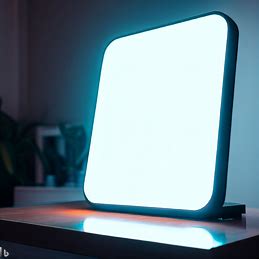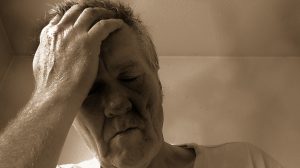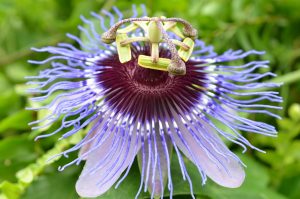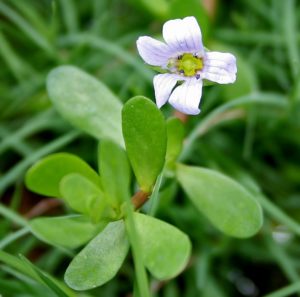Sleep Deprivation as a Treatment for Depression

Most people don’t associate a loss of sleep with improved mood. However, a growing body of research suggests that, at least for some individuals, sleep deprivation can provide a rapid, short-term improvement in depressive symptoms.
Initial Studies
The initial research reporting benefits for a lost night of sleep on depressive symptoms was conducted in the early 1970s (Pflug 1971). The study would likely not pass current ethical standards, as the patients were not told the real reason for the enforced sleep deprivation. The study included 34 depressed patients, 11 of whom had coexisting emotional instability and 23 non-depressed control subjects. In the study, the patients were told they needed to stay awake all night for a special eye exam the following morning. A nurse monitored the patients in the waiting room, making sure they didn’t fall asleep.
The researchers used a 15-question, 300-point rating scale for depressive symptoms. They found that one night’s sleep deprivation worked best for cases of depression with less emotional instability, reducing symptoms by an average of 27 points. Interestingly, for patients struggling with their first episode of depression, sleep deprivation was even more effective, reducing symptoms by an average of 36 points. Some of the patients had rapid improvement the following day after the loss of one night’s sleep. Other cases slowly and steadily improved over a few days with the intervention. For depressed patients with emotional instability, the results were less effective, with one patient reporting a worsening of symptoms. While intriguing, depression symptoms typically recurred over a few days.
Possible Mechanisms of Sleep Deprivation: Improving Stress Hormones
A study in 1974 noted the initial findings and attempted to link sleep deprivation treatment with levels of stress hormones (Matussek 1974). The study was small, including just 14 patients, but suggested that depressed individuals with higher stress levels (as measured through the stress hormones epinephrine and norepinephrine) improved, while patients with lower levels did not. Additionally, levels of norepinephrine were increased significantly in depressed subjects that responded well to sleep deprivation.
A separate study utilized a drug that acts on the neurotransmitter dopamine, increasing dopamine levels in the brain. Opposite of the expected findings, the drug appeared to fully block the benefits of sleep deprivation on mood (Benedetti 1996). The authors hypothesized that the effects could have been due to downregulation of dopamine receptors from having patients take the medication for six days prior to sleep-deprivation treatment. Regardless, the study suggests that dopamine is involved in the acute antidepressant effects of sleep deprivation.
A more recent trial explored the antidepressant effects of sleep deprivation through the inhibition of slow-wave sleep (Landsness 2011). Generally, slow-wave sleep is thought of as deep sleep, when the body is most relaxed. In the study, participants were allowed to sleep with equipment that monitored their brain waves. When they began to enter slow-wave sleep, sounds were played that inhibited slow-wave sleep from continuing but did not fully awaken the study participant. Interestingly, the technique still improved depression symptoms by 27% on average, similar to a full night of sleep deprivation. As an additional benefit, waking vigilance was not affected.
Interestingly, research also suggests that using caffeine as an aid to staying awake doesn’t harm the antidepressant effect of sleep deprivation (Schwartzhaupt 2009).
Early Trials Combining Sleep Deprivation and Antidepressant Medication
Initial trials exploring the combination of sleep deprivation with antidepressant medications also appeared promising. Antidepressants are known to have a slow action of onset. In other words, depressive symptoms can take weeks to improve with standard medications. In patients treated with a combination of antidepressants and a single night of sleep deprivation, improvements appeared to be more rapid and sustained (Loosen 1976).
A later study tried combining medication with four nights of sleep deprivation spaced over a two week period (Elsenga 1982). During the first week, the combination of medication and sleep deprivation worked better than sleep deprivation or medication alone. However, in the second week, continuing benefits from two additional nights of sleep deprivation were not observed. Based on the results, the same research group attempted to improve the results by following a full night of sleep deprivation with a partial night of sleep deprivation. In the study, relapse rates were further improved (van Bemmel 1981). However, a later trial failed to confirm the effects of a full night of sleep deprivation followed by a night of partial sleep deprivation when combined with medication (Elsenga 1990).
Additional Strategies: Partial Sleep Deprivation, Medication and Repeated Sleep Deprivation
To extend or augment the effects of sleep deprivation, researchers continued to explore other approaches. A group of 18 depressed patients who were not improving with medication were treated with sleep deprivation (Dessauer 1985). In the study, medication was continued and combined with partial sleep deprivation, depriving patients of the second half of their night’s sleep every five days for a total of 25 days. The combination appeared to be more effective. Fully one-third of drug resistant cases achieved full or almost full relief of depression with the treatment. However, two cases worsened significantly at the beginning of the trial.
Other studies have shown that partial sleep deprivation—losing the second half of a night’s sleep—was found to achieve similar effects as to the loss of a full night’s sleep. Combining partial sleep deprivation with lithium medication also seemed to enhance the therapeutic benefits (Baxter 1986). Shortening sleep deprivation even further, to just two hours between 3 and 5 AM, reduced the antidepressant effects as compared to the deprivation of a full night’s sleep (Giedke 1990). Comparing partial-night sleep deprivation to total sleep deprivation found that the effect appears stronger the more sleep that is deprived over a single night (Giedke 2003).
A further study explored the timing of partial sleep deprivation and found no difference between early night deprivation or early morning deprivation (Giedke 1992). Maintaining the total sleep time to just three hours appeared to provide the same antidepressant effects either way.
Phase-Advanced Sleep for Maintaining the Antidepressant Effects of Sleep Deprivation
Researchers have also attempted to explore other ways to sustain the short-term antidepressant effects of sleep deprivation. One approach is through “phase-advanced sleep.” Phase-advanced sleep involves going to bed earlier than normal (Riemann 1999). After a night of sleep deprivation, the patients’ sleep schedules were advanced. In the study, the patients were instructed to sleep between 5 PM and midnight. Each subsequent night shifted the sleep schedule by one hour until patients were eventually sleeping from 11 PM to 6 AM. Results of the intervention were quite positive. Almost two-thirds of patients maintained the antidepressant effect of sleep deprivation through the phase-advanced sleep schedule.
Further studies appear to confirm the benefits of combining sleep deprivation with phase-advanced sleep (Riemann 1999, Bernedetti 2001, Volderholzer 2003). One of the more recent trials found that 72% of patients responded to sleep deprivation followed by phase-advanced sleep with decreased symptoms of depression (Trautmann 2018). Patients that responded the best were typically younger, with a later onset of depression. It also seemed to work best in patients with less of a genetic predisposition for mental illness.
Bright Light Therapy and Transcranial Magnetic Stimulation

Other modalities that have been utilized in an attempt to extend the benefits of sleep deprivation therapy include bright light therapy and transcranial magnetic stimulation (TMS). Bright light therapy is usually carried out with a light box that a patient sits behind for 30 minutes in the morning after awakening. Transcranial magnetic stimulation involves applying a large pulsed magnetic field to the front of the brain and has been shown to have antidepressant effects.
A meta-analysis of sleep deprivation combined with phase-advanced sleep, bright light therapy and transcranial magnetic stimulation found that all of the treatments yielded additional benefits for sustaining the antidepressant effects (He 2023).
Bipolar Depression
While studies have utilized sleep deprivation for patients with both standard depression and bipolar-type depression, a small, but significant percentage of patients with bipolar can become manic or hypomanic from the treatment (Colombo 1999). Bipolar disorder is characterized by bouts of depression interspersed with periods of mania or hypomania. Mania is a state where an individual feels increased energy with a decreased need for sleep, usually accompanied by a flurry of thoughts and ideas, pressured speech, hyperactivity and increased risk taking. While sleep deprivation can improve mood in bipolar individuals, it does so with a small risk for inducing mania.
Conclusion
Sleep deprivation is well proven to induce short-term antidepressant effects in some patients struggling with depressive symptoms. These benefits can be extended through a number of techniques including phase-advanced sleep, bright light therapy and transcranial magnetic stimulation. These techniques appear to offer additional options for treating depression that can work both with and without standard medications.



